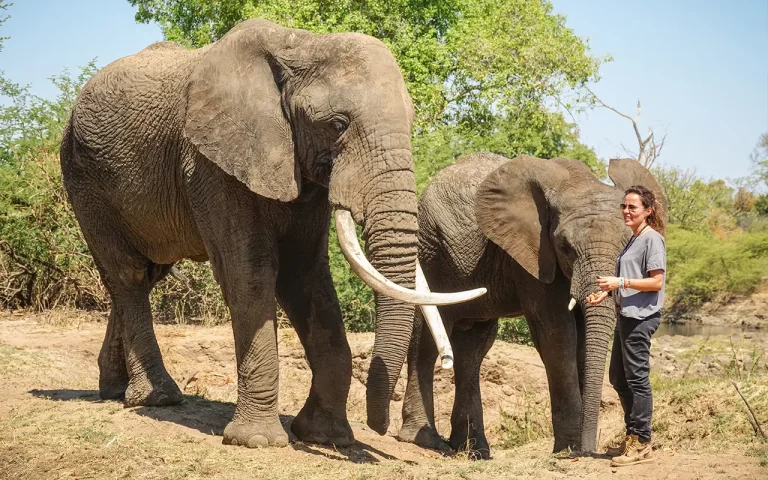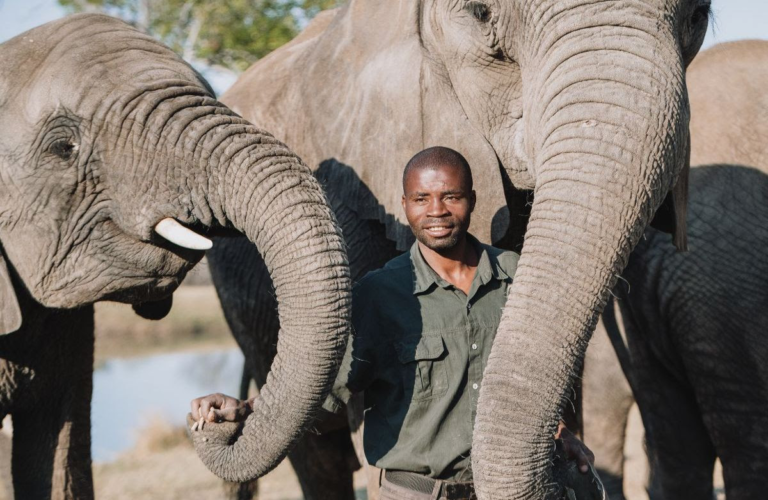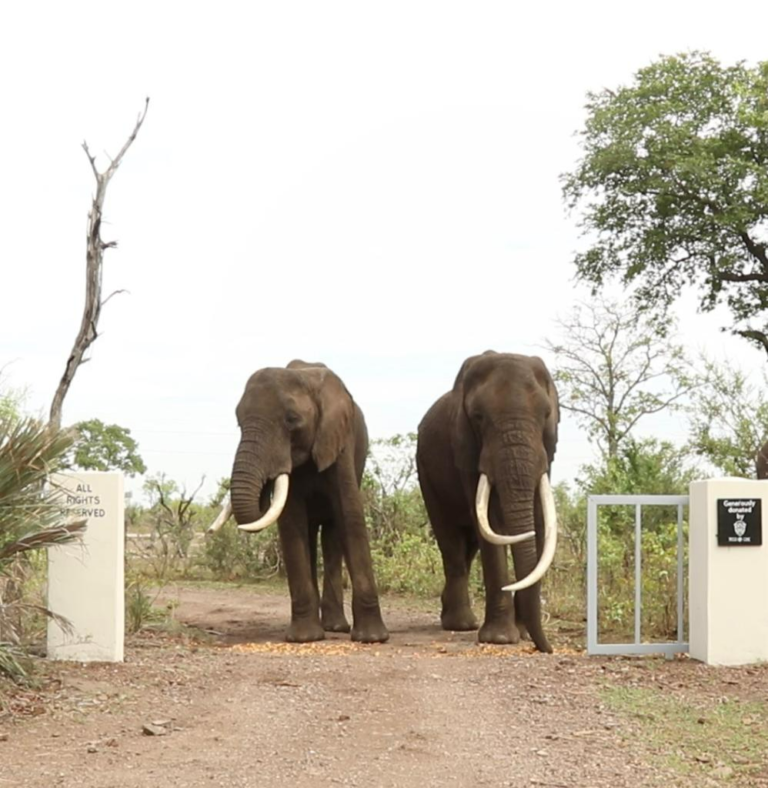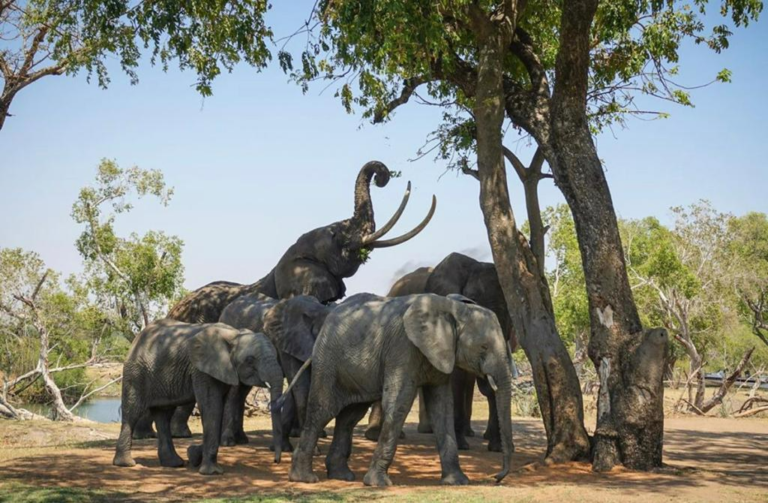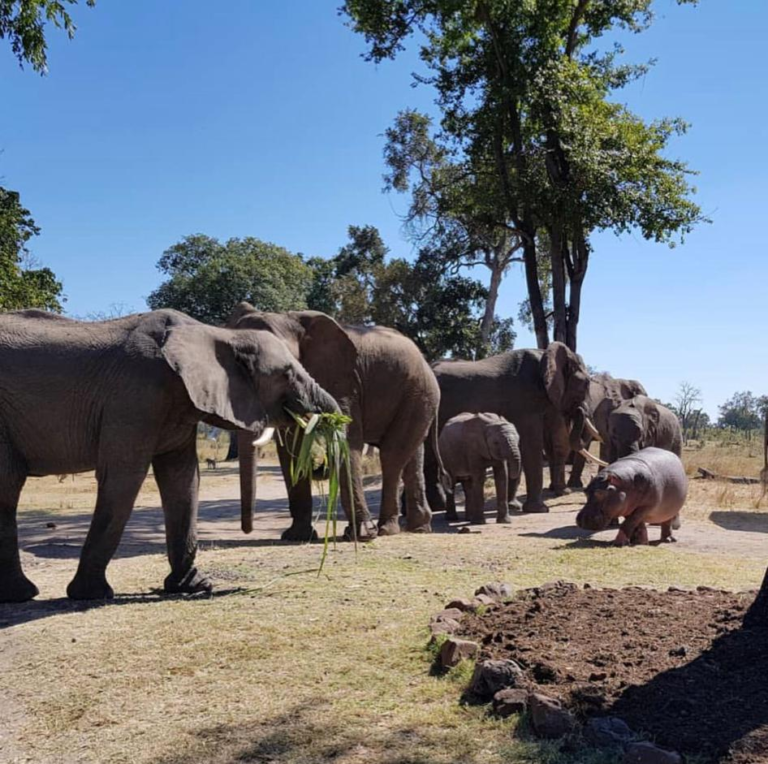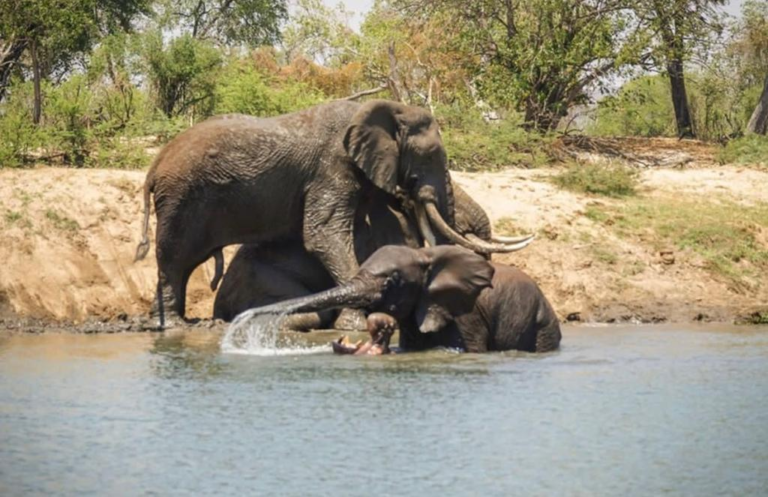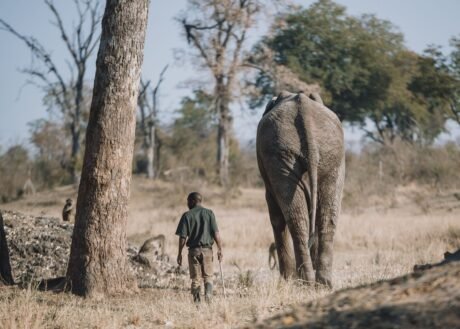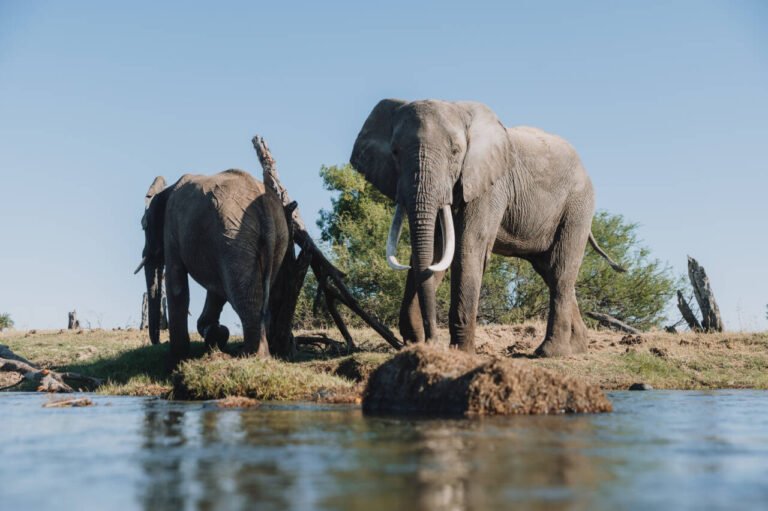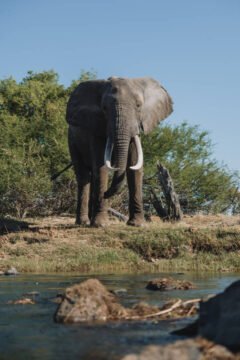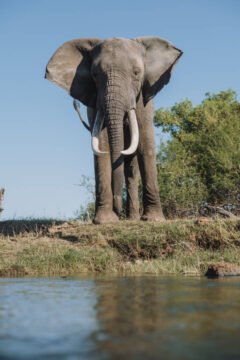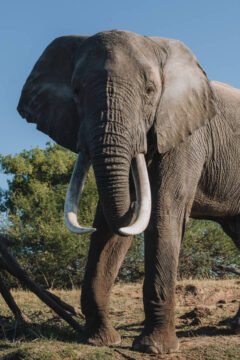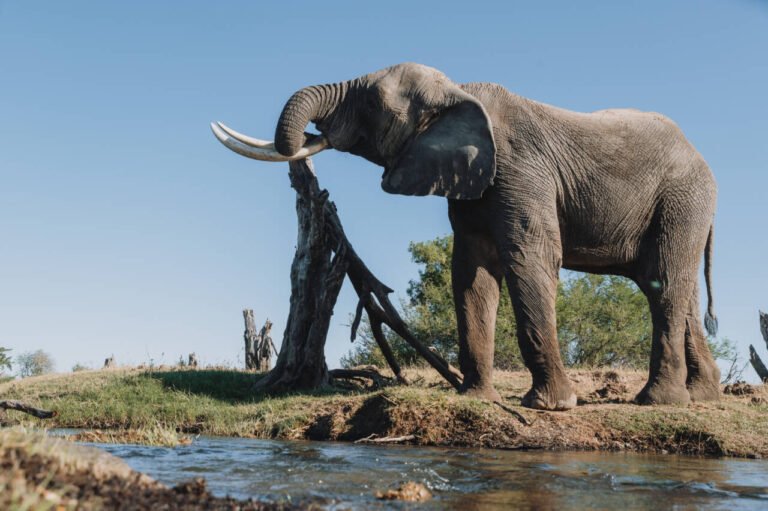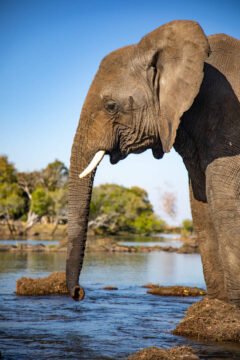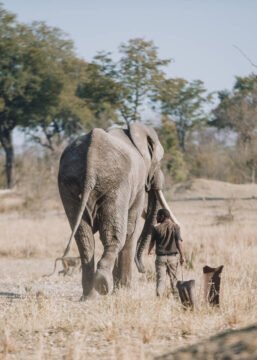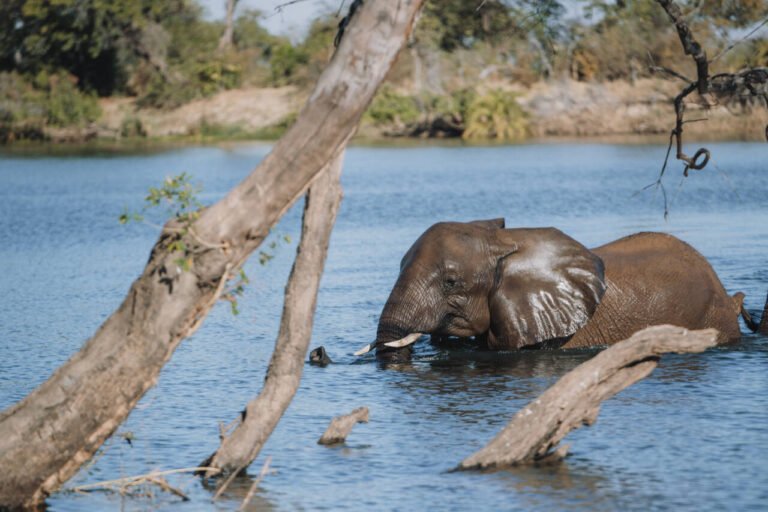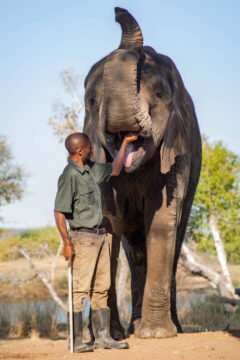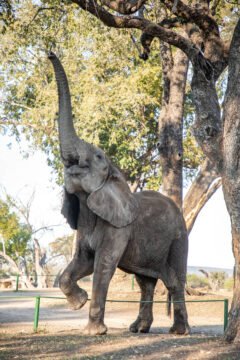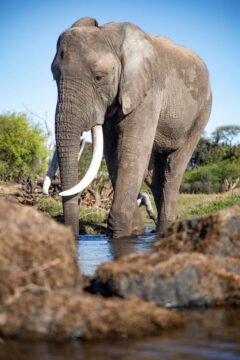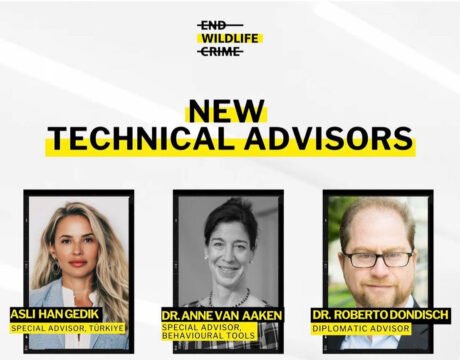Introduction of the Livingstone herd:
BOP
The oldest member of the herd, we estimate Bop’s age to be approximately 70 years old (as of 2023). Bop was rescued in Mana Pools during the intense culling in the 1960s and subsequently raised by local farmers in Chiredzi. Little did they know how large he would grow! Bop and Danny were brought to Victoria Falls together and moved to Mosi-Oa-Tunya National Park in Livingstone in 2002. Former patriarch of the herd, Bop has sired three calves – Nandi, Muyuni and Nyami and lives out his days in and around the National Park and islands. Bop’s huge tusks began cracking due to old age. The tusks have been shortened by the vet in order to prevent further breakage and discomfort.
DANNY
Approximately 60 years old (as of 2023), Danny is the dominant bull of the herd and whilst extremely gentle in nature, he keeps the younger bulls in check. Danny was rescued with Bop and they stick together all the time in the bush. He recently survived a crocodile bite to his truck while drinking along the Zambezi River, the scar can be seen on his trunk. Danny carries a magnificent set of ivory.
MADINDA
We call Madinda ‘The Dancing Elephant’ – this 43 years old (as of 2023) bull is extremely intelligent and full of character. Madinda was found alone under predator attack as he had lost his herd in the long search for food and water during a severe drought in the Gonarezhou National Park during the 1980s. At the time of the rescue, Madinda had lost half his tail and ear to predators.
MASHUMBI
Mashumbi is the matriarch of the herd at an estimated age of 48 years old (as of 2023). Also a casualty of drought, she quickly gained respect as the leader once the core group of elephants came together. Mashumbi once left with a herd of 14 wild bachelor elephants to the South Kafue National Park and returned 10 months later pregnant. Mashumbi leads the herd in their daily routine of bathing in the Zambezi, foraging in the bush or dozing in the shade of nearby Acacia trees. Mashumbi has had two calves – Chavaruka (sired by wild elephant, now deceased) and Muyuni.
LEWA
The glamour cow of the herd, this very social 45-year-old female will hum when she is happy. Found and raised with Marula, the two were inseparable until Lewa had her first calf (Nandi). In 2014, Lewa gave birth to her second calf, Nyami.
